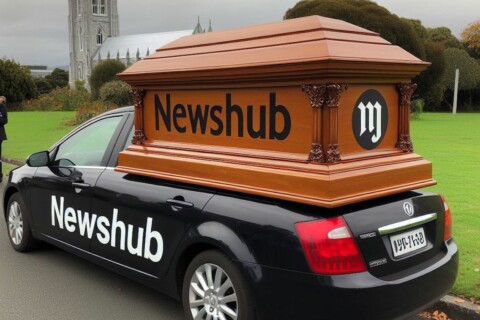Octogenarian philosopher Raymond Bradley not only insists that the idea of God must die for humans to start to create a better world, but claims to be able to prove that the deity does not exist. By GARY STEEL
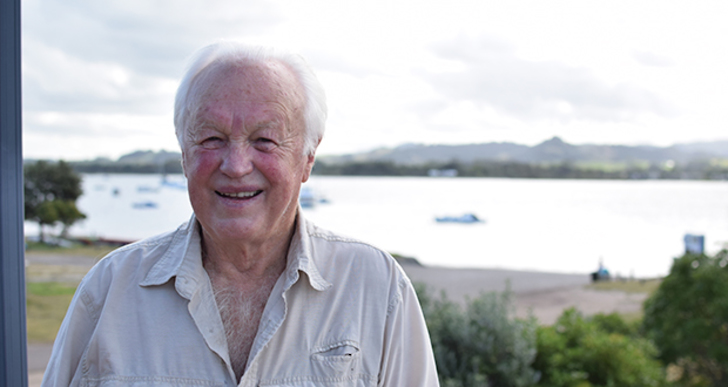 In 2010 I met Raymond Bradley when I was rounding up candidates for a story I was writing for a national newspaper about the high-achieving elderly. Encountering Bradley for the first time was a mind-melting experience, and a kind of personal epiphany.
In 2010 I met Raymond Bradley when I was rounding up candidates for a story I was writing for a national newspaper about the high-achieving elderly. Encountering Bradley for the first time was a mind-melting experience, and a kind of personal epiphany.
This professor of philosophy (and ski champion!) was – despite having had some recent episodes of poor health – clearly firing on more intellectual cylinders than most in the prime of their youth.
Bradley spoke at length about his sporting achievements but in even greater length about the subject of his abiding interest: his atheism and why God does not exist.
His background on the subject was impeccable. Having been raised by fundamentalist Christians – his grandfather was a minister of the church – his questioning of the basic illogic of the concept led to beatings and ex-communication, but he soon found that he could (metaphorically speaking) beat the living shit out of his opponents in university debates.
Even as far back as the 1950s, Bradley was a respected if controversial figure as he became one of New Zealand’s – and subsequently internationally – most eloquent proponents in the complicated business of thinking logically. And the natural upshot of that was his absolute rejection of God.
I chatted with a very convivial Bradley over red wine at his Omaha beach house while his partner Juliet – who sadly died in 2015 – buzzed happily around in the background.
During our amazing encounter Bradley discussed many of the ideas that, five years later, he would expound on in much greater detail in his one-inch punch to the deity’s imaginary head, God’s Gravediggers: Why No Deity Exists (Ockham Publishing).
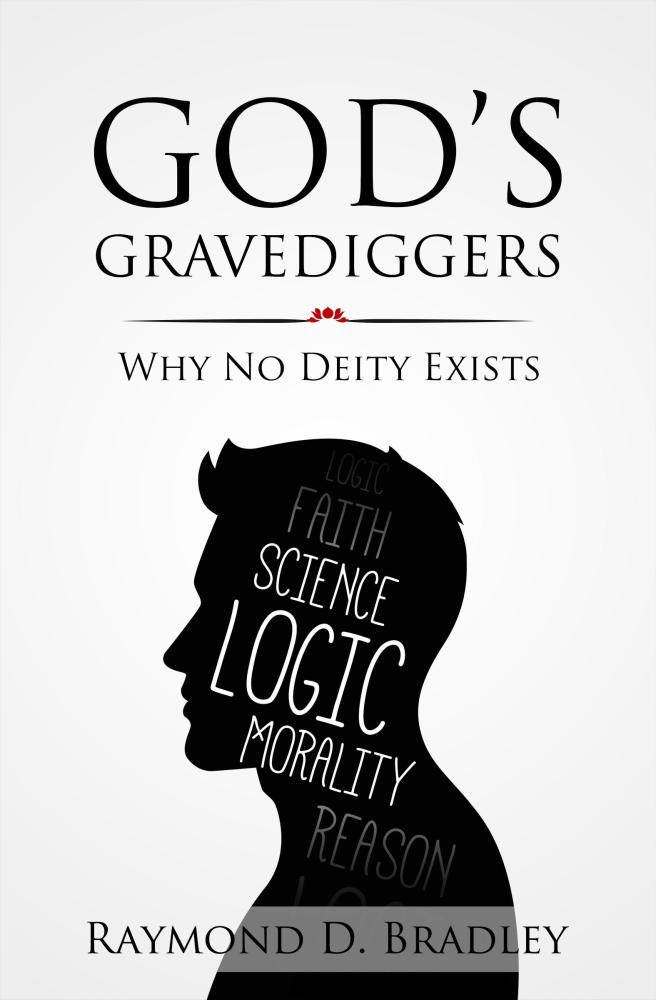 It’s an extraordinary attempt to paint religion (of all stripes) as medieval, stupid and the cause of war and pestilence through the ages, but it’s the way he ties the noose around the Christian God’s neck – and just keeps squeezing – that makes it such a humdinger.
It’s an extraordinary attempt to paint religion (of all stripes) as medieval, stupid and the cause of war and pestilence through the ages, but it’s the way he ties the noose around the Christian God’s neck – and just keeps squeezing – that makes it such a humdinger.
The book tries to present itself as readable to the less academic (such as myself) but I still found parts of it really hard-going, simply because he used a form of logic in some chapters that takes some getting your head around. It was a case of ‘if you don’t understand the methodology, then how can you understand the conclusions’, but I persisted and think much of it got through my thick head eventually.
Regardless of my difficulties with one or two chapters, however, most of the book was much easier to grasp, and it’s the kind of experience that just kept on gifting me with blinding revelations.
Having been brought up religious myself, but having long ago rejected Christianity for some kind of woolly, nebulous kind of spiritualism, I can happily report that at 59 I’ve finally come to terms with my place in a Godless universe, and it feels pretty good.
The following are excerpts of my long-form chat with Raymond D. Bradley.
Bradley – I was brought up in the hotbed of fundamentalist religion, with the intent of following in my maternal grandfather’s steps. He was quite a noted evangelist. I was intent early on, on becoming a missionary or minister, and with those ambitions, I wanted to understand the foundations of my faith. And at the age of 11 I started reading systematic theology. I also asked a lot of penetrating questions. Right from the beginning I had a propensity to ask questions and not be satisfied by spongy or evasive answers.
Steel – So, in a funny sort of way, your religious background actually instigated…
Bradley – The mode of philosophical enquiry. In effect it began as the subtitle to one of my essays called From Fundamentalist To Free Thinker. It all began at a very early age with Santa. At that time I believed in Santa just as fervently as I did in Mother Mary, Jesus in the crib in Bethleham and God sitting above, the wrathful God of the old Testament, and also the wrathful God of the New Testament who, if Jesus was to be believed, was going to consign the majority of mankind to hell. So I believed strongly in Santa, and then I discovered that some of my fellow school mates didn’t. I had become accustomed on Christmas day, or nearing Christmas, to going down to Queen St, and seeing Santa at Milne & Choice, to seeing Santa up at the Farmers, to seeing Santa at Smith & Caughey’s. Santa seemed to be everywhere! So I wanted to know, how many Santas are there, and which one is real? I was encouraged by my parents to retain my belief in Santa, despite their inability to explain, except that they would say ‘there’s only one real Santa, these are just pretend ones’. That prompted me to think how about God. I believe there are many gods that have been believed in by many religions, and fragmentary gods believed by the fragmentary segments of each. How many of them are real? There can at best be only one supreme God, one real God, or is all belief in God as mythologically based as is the belief in Santa? Encouraged by this mode of enquiry, as I said before, my unpreparedness to settle for spongy or evasive answers to very simply phrased questions… I pursued my study of theology in considerable depth starting at age 11, having had three volumes of systematic theology bequeathed to me by my grandfather.
By the time I was 13 or 14 I was known in the church as something of a dissident if not something worse. By the time I was 16 I’d come to question the historical veracity of the New Testament stories of Jesus, which were mutually inconsistent in many respects, and was dismayed to find out that the myth of a risen again saviour had been around the Middle East for a couple of thousand years at least prior to the alleged life of Jesus. Why on earth would God choose to emulate all the other myths? As a result of diligent research which continues to this very day, reading both the pros and the cons, and placing increasing reliance on the archeological evidence, I’ve come to believe that the whole story is just a myth.
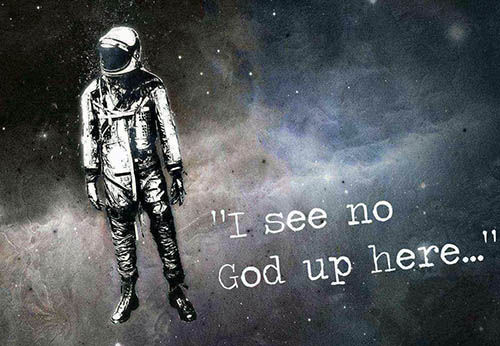 The Gospels are not contemporary, they’re not written by eye witnesses, none of them is written in the first person, they were written at the earliest… Biblical scholars as distinct from Biblical students have come to the conclusion that they were written at the earliest in 70AD and that the last of them, the gospel of John, was probably written in 140AD. The doctrines about Jesus and his divinity don’t assume dominance in any of the church fathers until sometime around four centuries after the time of his purported birth. There are inconsistencies in Matthew and Luke, for example, about when he was born.
The Gospels are not contemporary, they’re not written by eye witnesses, none of them is written in the first person, they were written at the earliest… Biblical scholars as distinct from Biblical students have come to the conclusion that they were written at the earliest in 70AD and that the last of them, the gospel of John, was probably written in 140AD. The doctrines about Jesus and his divinity don’t assume dominance in any of the church fathers until sometime around four centuries after the time of his purported birth. There are inconsistencies in Matthew and Luke, for example, about when he was born.
“Now, some apologists brush these problems aside. I think it’s Matthew that says that Jesus was born in the days of Herod, or implied that by virtue of the claim which is purely mythological that Herod ordered the slaying of all the innocents. The so-called massacre of the innocents was allegedly, according to Matthew, a consequence of the news being broken to him that a future king of the Jews had just been born in Bethleham. Herod died in 4BC, Luke I think it says he was born in the days when Cyrenius, a well known historical figure, was Governer of Palestine and Syria. That was in 10AD, a gap of 14 years. We know the dates, let alone the years, for the birth of contemporaries, but not of Jesus. What?
He wrote nothing, left no legacy that way. Left a legacy of inconsistent stories being told about him years later. There’s no record at all in history that is non-Church-based documents, of his existence. The early church took great pains to burn all books challenging the sceptics. For example Celsum against whom Origen wrote a book called Contra Celsum. We owe what we know of Celsum criticisms from a reconstruction by Origen who quotes him liberally when criticizing him.
Steel – So there’s a rebuttal in existence, but not the original document?
Bradley – [Nodding]. As for Moses, there’s no evidence of his existing. There’s no evidence of the flight to Egypt, or the children of Israel being imprisoned there. In much the same way as they, in turn, are imprisoning the Palestians in Gaza, on the West Bank. We know a lot about the day-to-day goings-on, the dates of various Egyptian figures for thousands of years prior to that. But there’s no mention of it. The best evidence, archaeological evidence, recently explored by famous Israeli archeologist, leads to the conclusion that far from being in Egypt and then undertaking the conquest of Canan, the Jews of that time were invaded by and occupied by Egypt. It was from the slavery of their peoples by the Egyptian occupiers that they are talking about. So again, myth, akin to the myth of Maui and the fishing up of New Zealand.
Anyway, by the time I was 17 or 18, despite trying hard to fortify my faith, I became an atheist.
Steel – How did your parents react to that?
Bradley – Oh, with desperation. They continued to prey for my soul until each of them died.
 Steel – You weren’t ostracized or anything?
Steel – You weren’t ostracized or anything?
Bradley – Oh, yes I was. I was tolerated. I maintained my contact in the church mainly to mollify them, right through until I left to go to Australia. One of the most memorable debates I ever had was my very first. It occurred at Mt Albert Grammar under the guidance of my English teacher at the time who is one of the few teachers for whom I have any respect. His name was Maurice Hutchins. When I was in the fourth form he said ‘it’s about time you boys experienced a debate. How about a debate topic?’ Various people suggested various things, and one topic was Creation vs. Evolution. Well I was at that time, though ridden with doubts, nevertheless an ardent Baptist, and I believed fervently in Creation. I joined with a fellow class mate, a Seventh Day Adventist whose name I forget, and we argued the case for Creation vs. Evolution, a misbegotten alternative if ever there was one. Pursuent to the aim of trouncing the opposition, I read every tract I could lay my hands on, and was directed to the Bible Training Institute at the top of Queen St, and various ministers supplied me with anti-evolution material. And I researched it thoroughly. Then came the day of the debate. It was a draw, or I think we might have won by one or two votes. Be that as it may, that evening my parents called me into their bedroom and asked me how the debate had gone. I was reluctant to tell them. I think I might have said we won, whatever the facts were. ‘Well, tell us more dear.’ I was very reluctant to do so, because as the facts were, as they gradually elicited from me, in the course of reading all the anti-evolutionist arguments I’d come to believe that the case for evolution was compelling! Eventually, I was honest enough to confess, whereupon my mother said ‘you fool!’ in terms of vituperative contempt. And I said ‘you’re both just bigots’. That was not an encouraging start. I finished up running away that night, having been beaten badly by my father who broke my nose, and I slept the night among the sheep in the crater of Mt Albert.
 Such was the intensity of their faith that they saw me being imperiled by this questioning. They attributed my propensity to question to some of my older Bible Class friends, who all blamed it on me. I was put into the hands of the local Minister to deal with my problems. I was sent to the President of the Baptist theological college. An hour or so with him and he couldn’t answer anything. I then went up to the Waitakeres and spent a weekend with Professor EM Blacklock who was a noted lay preacher in our church and a friend of my father, and who I referred to at that time as Uncle Ted. He was professor of classics at the university, and he later went on to become the university orator. I spent a weekend with him, and was bored by the books in his study, and remember asking him if he had read all of them, and he said yes. I can well believe it, he was a very learned man. But at the end of hours of theological discussion about the historicity of Jesus, for example, and about the problem of hell, which was much on my mind in those days, because it seemed to me that a just God could not send people to hell – there was something wrong with one of the doctrines. Eventually the upshot was ‘well, Ray, I can’t answer your questions. Here’s a cheque’ and it was for a substantial amount of money in those days, ‘go to the Bible Training Institute book room and purchase the following texts’. He recommended something by TH Hammond and a couple of books by CS Lewis, of more enduring fame, etc. He said ‘purchase these, read and prey’. I read, and tried to prey, and the heavens were closed. So I flirted with the idea of Deism for a little while – that is a creator God, for whom I still felt there was some sort of need. A God who having created the world set it wound up as it were, to get on by the laws of nature that he had then instituted, and then turned his back on it, not once thereafter did he intervene, according to the Deists. And of course the Deists have become very powerful among a powerful belief system among people like Jefferson and David Hulme the great Scottish philosopher… but then I came to the thought that Deism is just sexed-up Theism. And I found even the belief in a creator God totally without intellectual foundation in reason or experience.
Such was the intensity of their faith that they saw me being imperiled by this questioning. They attributed my propensity to question to some of my older Bible Class friends, who all blamed it on me. I was put into the hands of the local Minister to deal with my problems. I was sent to the President of the Baptist theological college. An hour or so with him and he couldn’t answer anything. I then went up to the Waitakeres and spent a weekend with Professor EM Blacklock who was a noted lay preacher in our church and a friend of my father, and who I referred to at that time as Uncle Ted. He was professor of classics at the university, and he later went on to become the university orator. I spent a weekend with him, and was bored by the books in his study, and remember asking him if he had read all of them, and he said yes. I can well believe it, he was a very learned man. But at the end of hours of theological discussion about the historicity of Jesus, for example, and about the problem of hell, which was much on my mind in those days, because it seemed to me that a just God could not send people to hell – there was something wrong with one of the doctrines. Eventually the upshot was ‘well, Ray, I can’t answer your questions. Here’s a cheque’ and it was for a substantial amount of money in those days, ‘go to the Bible Training Institute book room and purchase the following texts’. He recommended something by TH Hammond and a couple of books by CS Lewis, of more enduring fame, etc. He said ‘purchase these, read and prey’. I read, and tried to prey, and the heavens were closed. So I flirted with the idea of Deism for a little while – that is a creator God, for whom I still felt there was some sort of need. A God who having created the world set it wound up as it were, to get on by the laws of nature that he had then instituted, and then turned his back on it, not once thereafter did he intervene, according to the Deists. And of course the Deists have become very powerful among a powerful belief system among people like Jefferson and David Hulme the great Scottish philosopher… but then I came to the thought that Deism is just sexed-up Theism. And I found even the belief in a creator God totally without intellectual foundation in reason or experience.
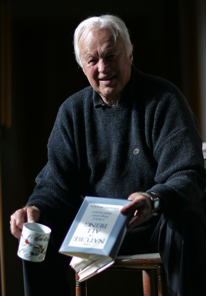 It now seems to me that belief in a supernatural god – who after all has to be a supernatural being if he’s to be outside the natural world and bring it into existence – is akin to belief in magicians. A great magician above the sky. Most educated people these days, unless they’re subject to a high degree of gullibility, don’t believe in magic. Not real magic, that is, as opposed to manipulation of the laws of nature so as to deceive the gullible. We don’t believe that magicians can really pull rabbits out of hats, and yet here’s this enduring belief that so many people have that God, the great magician, a supernatural one, has the ability to conjure the whole of existence out of nothing, not even a hat!
It now seems to me that belief in a supernatural god – who after all has to be a supernatural being if he’s to be outside the natural world and bring it into existence – is akin to belief in magicians. A great magician above the sky. Most educated people these days, unless they’re subject to a high degree of gullibility, don’t believe in magic. Not real magic, that is, as opposed to manipulation of the laws of nature so as to deceive the gullible. We don’t believe that magicians can really pull rabbits out of hats, and yet here’s this enduring belief that so many people have that God, the great magician, a supernatural one, has the ability to conjure the whole of existence out of nothing, not even a hat!
So I don’t go for it, and I think one of the recent incarnations of the creation argument, which incorporates elements of the argument from design, Intelligent Design, which is the latest reincarnation of the earlier form of design by William Paley… This is the argument for Fine Tuning. Now, the argument for Fine Tuning, very briefly put, says that the original conditions of the universe, moments after its creation or at the time of its alleged creation, which is generally thought to have been 13.73 billion years ago… the initial conditions were such that had any of the six or seven major laws been only minisculy different from what they were, in fact, according to the latest theory, then either the universe would have expanded too fast to enable life to occur, or it wouldn’t have expanded in the way that it has. So the probabilities of the constance having precisely the same values as they’re said to have is inordinately, astronomically low, it is improbable that they would be that way. Therefore, God must have done it. First we should look at two things. First the notion of probability and improbability. How probable, can I ask you, is it that you would have met me, and be sitting here listening to me talking about the Design argument and the Fine Tuning argument – how probable is it a priori, that is given no information about prior conditions. Totally improbable! Astronomically improbable! How probable is it that you have the biological genetic constitution that you have, and your propensity to go into journalism, that I would be born exactly what I was, have that precise combination of genetic material from my mother and father, at this time in history, and have researched the Fine Tuning argument? How probable is it that we would meet, and discover that we have friendship together? It’s totally improbable. The improbability is astronomically small.
Steel – So the Fine Tuning argument is saying that everything is pre-ordained.
Bradley – Yes it is, but it’s been pre-ordained is to be attributed to a great magician in the sky, or above the sky, and yet we have no evidence of any event in the natural universe arising from the intervention of some other supernatural agent. We no longer believe in fairies. We no longer believe in the God that causes the wind to blow, and a God that causes meteorites to fall, etc. Every event in its particularity is a priori and I use that term in a technical way, that is without the input of experience, capable of being assessed as anything more than infinitesimally probable. As for events being attributable to non-natural agents, the track record of that set of beliefs is appalling. We can’t point to one. The ascription to a supernatural being of some sort, the belief that events can be ascribed to such an agent, has the most appalling track record. So if you’re going to assess probabilities on the basis of the track record of the purported agent, then it’s absolutely nil. And yet here they are invoking this even more improbable belief, in an attempt to explain the probabilities of Fine Tuning. Come on! [laughs]
Now do you want to get off religion? I could talk interminably about it.
 Steel – Well it’s interesting, because this stuff isn’t discussed that often. You could write a book.
Steel – Well it’s interesting, because this stuff isn’t discussed that often. You could write a book.
Bradley – I am writing one.
Steel – What you have to say is of vital importance, and yet looking through what I can see of your work online…
Bradley – I discovered that only yesterday. A lot of them are in newer versions on the Secular Web, and you’ll get a number of my articles, about 17 or 18, all in refreshed versions. The Secular Web is the most widely read website for atheistic and agnostic writers. And you can check on that on the author index for each of the two divisions, there are some articles which have gone into the Library category for careful research by people. They tend to be more tightly argued papers. And then there’s the Kiosk section, and you’ll find some of my articles in the former, and a few of them in the latter. One in the Kiosk section that I think you’ll like is The Meaning of Life: Reflections on God, Immortality and Free Will.
Steel – It struck me in what I could find of your work that it’s written in a lingo that I find quite difficult as a non-academic. It’s quite hard-going, and I wondered, especially in light of the way you’ve been talking to me now in an easy to understand fashion – is there a way to simplify it so that people can learn…
Bradley – Good question. I must say I’m a little dismayed at the fact that you did find it hard going, because they’ve all been written for some sort of public occasion. Some have been written in a more academic style.
 Steel – There’s a language attached to academia which is distinct from the common language.
Steel – There’s a language attached to academia which is distinct from the common language.
Bradley – I’ve always prided myself on being able to bridge the gap as it were. Some of my articles I think you will find do that more successfully than others, for example Reflections On the Meaning of Life. I wrote for a group down in Auckland, the New Zealand Rationalists & Humanists. I wrote the Rivalry Of Religions, which I just wrote a totally new version of for a little group in Orewa, belonging to U3A, an organisation you find throughout New Zealand, an acronym for University Of The Third Age. And the intent of this organisation is to make some provision for people who have enquiring minds. Most of them have retired, but they want to know about more of some area or other. There are groups that are or were devoted in the Warkworth chapter to music, one’s on literature, one’s on modern history, one’s on ancient history, and four years ago I volunteered to give a class on philosophy. Unlike other groups I as leader was able to conduct the whole monthly series throughout the year because of my teaching experience, and nobody else around seems to know any philosophy. Not surprisingly. I’m now into my fourth year. I started with the topic ‘God’, and I had a huge number of attendees, up to 28 at one point. Most groups are only 5, 6, 7 or eight at the most. Most sessions in other groups are conducted in people’s private dwellings. There’s no way I could accommodate 14 here, which is the number that turned up for my first meeting. So we soon made arrangements to conduct sessions at the Heron’s Flight restaurant, and now I’ve got down to more difficult discussions, but I have a devoted coterie of about a dozen people. We meet every second Wednesday, we’re studying modern philosophy, but the first year as I say was God, then we did Immortality, then we did Free Will, and spending a whole year on it, with me largely doing the exposition, but encouraging a dynamic exchange with the attendees, has been very profitable.
Now, do you want to talk about philosophy?
I’ll give you a brief digest of the beginnings of my career, and the fortuitousness of my having got into it. As I said to you before you turned this thing on, I had no academic ambitions. I entered the teaching profession at the primary school level, but was encouraged by my future father-in-law who was a noted school teacher at the time, to take some university subjects as well that would stand me in good stead, he said, for my future career when it came to competing for head masterships. So I began in my first year by taking English and Biology part-time.
 I had a virtual contempt for what I was being taught in English, which seemed to me at that time to be nothing but a potpourri of more serious subjects that we were expected to get a psychiatric diagnosis of a question like ‘was Hamlet really mad?’ which seemed to be totally beyond the bounds of my competence, or anybody else’s at that level. And I took Biology, and was absolutely astonished, as were my whole family and friends, when somebody came back to Mt Albert where we were then living, and said ‘did you know that you came top in Biology?’ I wanted to take philosophy – I wanted to take it in my first year, having picked up smatterings of philosophy in my theological study, and I knew that it dealt with questions that had really haunted me from an early age. Like the question of God’s foreknowledge, which hit me when I was about 10.
I had a virtual contempt for what I was being taught in English, which seemed to me at that time to be nothing but a potpourri of more serious subjects that we were expected to get a psychiatric diagnosis of a question like ‘was Hamlet really mad?’ which seemed to be totally beyond the bounds of my competence, or anybody else’s at that level. And I took Biology, and was absolutely astonished, as were my whole family and friends, when somebody came back to Mt Albert where we were then living, and said ‘did you know that you came top in Biology?’ I wanted to take philosophy – I wanted to take it in my first year, having picked up smatterings of philosophy in my theological study, and I knew that it dealt with questions that had really haunted me from an early age. Like the question of God’s foreknowledge, which hit me when I was about 10.
I’ll backtrack to that, because it will give you a little insight into where I went in my early academic years. One night I was saying my prayers, and my mother is sitting beside me, and after I said my prayers, I said ‘mummy, what’s God like?’ and she told me the usual, lists of his attributes, he’s perfectly good, perfectly powerful, they call it omnipotent, and he knows everything. Does he know the future as well as the past? Yes dear, he knows that. Does he know where Daddy’s been in the Baby Austin all day? Yes dear, he knows that. Daddy had just bought a Baby Austin a week or two back. A little forget-me-not blue one! Does he know where Daddy’s going to be tomorrow? Yes dear, he knows that. Does god know what I’m going to do tomorrow, and next week. Yes dear, god knows all that. And at that point the penny dropped. If God knows everything, then how could Daddy or I do anything tomorrow that’s contrary to what God knows we’re going to do? His foreknowledge seemed to me to imply in a strictly logical sense that no-one can do anything other than what God knows we’re going to do.
I touched on the problem of predestination, which is a very important doctrine in the New Testament and to a certain degree in the old, though it’s seldom talked about these days. The problem of predestination… foreknowledge, predestination and free will. How can I be free to do anything other than what God knows? My future seems to be pre-determined, so how can I be responsible if I’m not free? It had an extraordinary impact on me, and I was a virtual zombie for about three weeks, feeling I was a puppet with God pulling the strings from on high, so that I complied with what he knew I had to do. It was an intellectual and emotional trauma for me. That was one of my first philosophical quandaries, fairly cogently expressed in my own mind. I researched volumes of what the theologians said about predestination and free will, and as I read through them I wrote an adjective, an expletive, ‘BOSH!’, in the margin, several times. I just thought that was the most implausible…
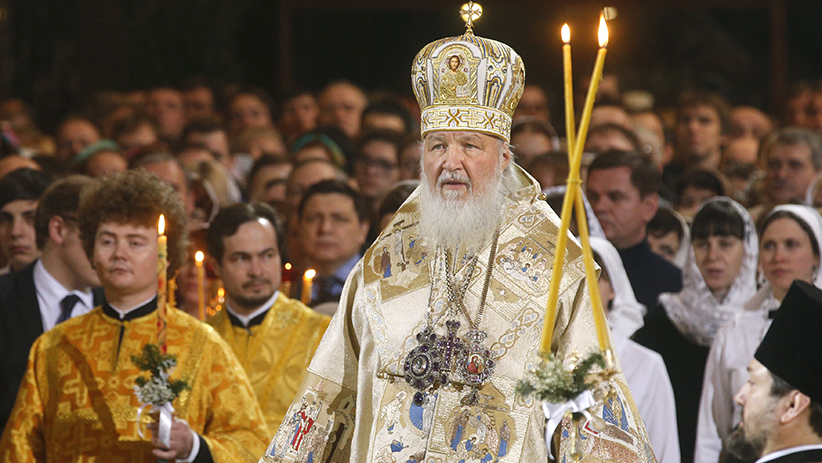 At this point I’ll just interject a general remark. One of the things that most bedevils clear thinking in my view is recourse to muddled metaphor. Metaphor, as I’ve told many of my stories through 40 odd years, may enhance your prose, but it seldom enhances your thinking. Indeed it can mislead you, and you can go on illogical premises. And much of what I read in the three volumes of Systematic Theology employed sloppy metaphor. So there was a preoccupation which I carried on from about the age of 10 [I’ve got it all documented in a paper called From Fundamentalist To Free Thinking]. It carried on with me through Bible class days – nobody could give me a clear account of what free will was supposed to be. How it was supposed to be compatible with God’s foreknowledge. It persisted with me. It’s what eventually drove me into studying philosophy, with a view to getting the conceptual armoury, as it were. The trained mind that I could bring to bear on some of the questions that were virtually haunting me.
At this point I’ll just interject a general remark. One of the things that most bedevils clear thinking in my view is recourse to muddled metaphor. Metaphor, as I’ve told many of my stories through 40 odd years, may enhance your prose, but it seldom enhances your thinking. Indeed it can mislead you, and you can go on illogical premises. And much of what I read in the three volumes of Systematic Theology employed sloppy metaphor. So there was a preoccupation which I carried on from about the age of 10 [I’ve got it all documented in a paper called From Fundamentalist To Free Thinking]. It carried on with me through Bible class days – nobody could give me a clear account of what free will was supposed to be. How it was supposed to be compatible with God’s foreknowledge. It persisted with me. It’s what eventually drove me into studying philosophy, with a view to getting the conceptual armoury, as it were. The trained mind that I could bring to bear on some of the questions that were virtually haunting me.
So I took philosophy, much against my parents’ wishes. They forbade me to take it in my first year, and they did their utmost to dissuade me in my second year. However, I took it and came top. I took philosophy the next year, and came top. Third year, and topped it. So I had this string of successes in philosophy that fed my intellect, fed my passion for understanding, that no other subject could do. It took me five years to complete my BA. At that time it was nine units, two a year plus one extra a year. I then followed up by taking philosophy at MA level. I did so contemporaneously with a guy who was two or three years older than I and already had a degree in science, and was a schoolteacher out at King’s College. He and I took philosophy at MA level together with my sweetheart Juliet’s mother sitting in on some of the classes; she was an exquisitely beautiful woman, and I used to just sit there, enchanted by her. Ah… we both secured first class honours degrees, the first in the department for five years. He went off to Oxford, which launched a highly successful career as an Oxford academic. He was eventual head of the philosophy of science department. I just retired to the primary school out at New Lynn. [He didn’t have a wife with money so couldn’t go to Oxford, or elsewhere]. There I taught for all of 1954. Then something happened. Now, there’s a message here. An opportunity arose, a purely fortuitous one. I had befriended a guy who had been New Zealand tennis champion, an MA first class honours student who had gone off to the university of California, who had done a rather good degree, a PHD, and then had been recruited back to Auckland as junior lecturer. I’d hung around the philosophy department and befriended him. One day he said ‘I’m going down to Wellington in May during the school holidays for the second annual philosophy conference in New Zealand. There’ll be a galaxy of great philosophers coming for the occasion from all over the world – principally from Australia, New Zealand and Oxford. He said ‘I’m reading a paper, would you like to come with me?’ ‘Yeah, I’ll have time off, that would be interesting.’ Then a couple of weeks later he said a professor who was supposed to be reading a paper had pulled out at the last moment, ‘why don’t you volunteer to read a paper in his stead?’ Now, I had never even so much as attended a philosophy seminar. Philosophy wasn’t taught in that kind of freewheeling way in those days. And I thought why not? So I phoned the organiser, head of philosophy and a great philosopher of religion and logician at Wellington, and offered to read a paper, and he said ‘what’s the topic?’, and I said I haven’t a clue. He said you’d better tell me by the end of the week, because I’m putting the schedule together. So I phoned again on the Friday and said ‘I haven’t started writing it yet but how about the meaning of freedom?’ With this haunting question in the back of my mind, I couldn’t start writing it because I was still teaching, until the first week of school holidays, at the very end of which the conference was being held. I wrote it, and I literally finished the last paragraph 20 minutes before I was scheduled to deliver it.
I was staying with an ex- Bible class friend who went on to become a noted missionary, in Wellington, borrowed his car and drove it 70 miles an hour on a Sunday morning across the university, walked into the big lecture theatre full of about 150 people, philosophers from all over the place, introduced by one of the world’s greatest logicians, Arthur Pryor, apologised for being late and read my paper. At the end of which was polite applause, and then I was subjected to something I had never anticipated, intense questioning. By questioning I don’t mean what normally goes on in academic conferences, you’re being thrown to the lions. They’re out to savage you, to find some chink in your argument, because that’s one of the best ways of finding the truth, not thorugh mere plausibility, not partial evidence, but complete consideration of everything that bears on the issue and how would you deal with this, or here’s an objection, how would you deal with it.
 Well, I was ill-prepared to deal with the questions. After a good three quarters of an hour, which was customary for the so-called discussion session, I became increasingly mum. Inept! I wasn’t a professional philosopher, I had just taken my MA for God’s sake. And I had had the pleasure of listening to a battle royal being done between various giants of the time, arguing over my inert body, as it were.
Well, I was ill-prepared to deal with the questions. After a good three quarters of an hour, which was customary for the so-called discussion session, I became increasingly mum. Inept! I wasn’t a professional philosopher, I had just taken my MA for God’s sake. And I had had the pleasure of listening to a battle royal being done between various giants of the time, arguing over my inert body, as it were.
At the end of that there was polite applause again, and Arthur turned to me and said ‘you haven’t had much to say for yourself’. I sat down and wanted to evaporate, I wanted to sink into the floor. I made a beeline for the nearest exit, but was apprehended on the way by somebody who said ‘there’s a group of professors who would like to meet you’. Allow me to introduce you to them, and there was the kingmaker of philosophy, Gilbert Ryle, there was the best historian of philosophy, there was one of the two or three top logicians, etc, etc. All congratulated me on the paper. Gilbert Ryle said ‘young man, I’d like you to regard me as your philosophical Uncle henceforth. Another offered me a PHD at an Australian university. Initially they said ‘what university are you teaching at?’, and I said I’m teaching at a primary school [laughs] so they rescued me from the primary profession, and about five or six months later I went off to Canberra, equipped with a wife – my ex-girlfriend from 12 – and my first-born child who was conceived on my honeymoon.
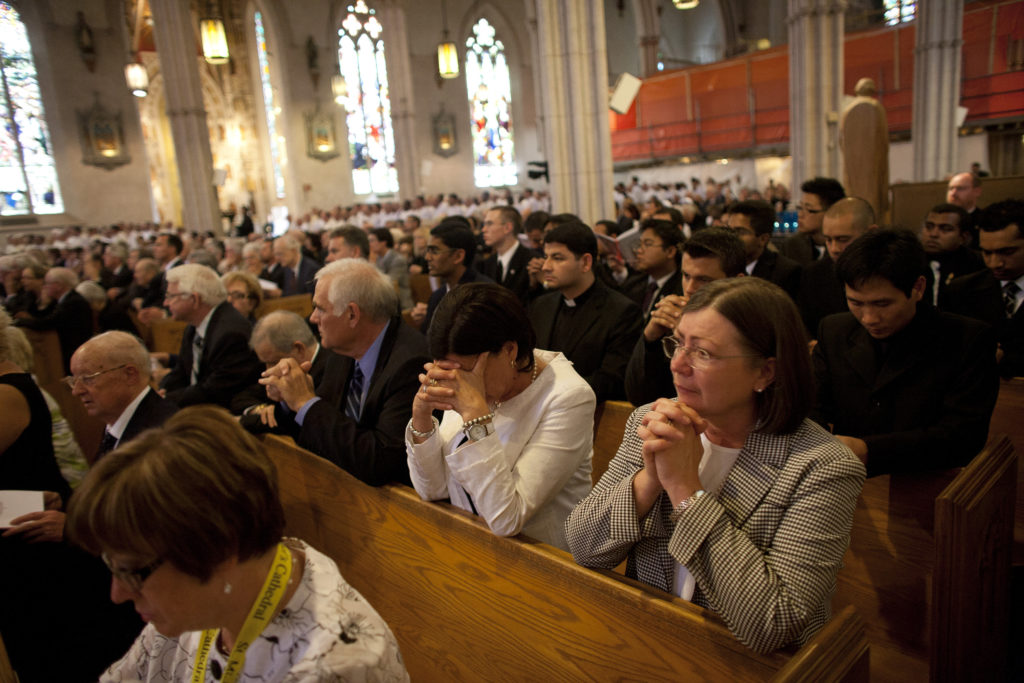 Shortly after it had become known to people that I had secured this scholarship, Juliet’s mother, Barbara, said ‘look, you’re going to need every penny living on a scholarship with a wife and child’. She said it might help you if you were to have accommodation in our basement apartment in Remuera, free accommodation in return for mowing the lawns and helping me occasionally in the garden. And so it was that I came to take up residence there for the next five or six months before I embarked overseas and met her four engaging daughters, one of whom was Juliet. Her twin sister is a noted potter who does all these gorgeous things here, Merilyn Wiseman. And we became friends then.
Shortly after it had become known to people that I had secured this scholarship, Juliet’s mother, Barbara, said ‘look, you’re going to need every penny living on a scholarship with a wife and child’. She said it might help you if you were to have accommodation in our basement apartment in Remuera, free accommodation in return for mowing the lawns and helping me occasionally in the garden. And so it was that I came to take up residence there for the next five or six months before I embarked overseas and met her four engaging daughters, one of whom was Juliet. Her twin sister is a noted potter who does all these gorgeous things here, Merilyn Wiseman. And we became friends then.
Anyway, I did my PHD, got a job at the University of New South Wales after three years, and then my PHD thesis had been examined by none other than Gilbert Ryle as principal examiner. One of the other main examiners was the professor of philosophy at Sydney, a man by the name of Alan Stout who phoned me up one day and said ‘I’m nominated to conduct your oral, do you like whisky?’ I said ‘I sure do!’ And he said ‘how about buying a bottle of such and such and we can celebrate’. My PHD oral consisted principally of three or four very innocent, non-critical questions from Ryle and a couple from him, and three-quarters of a bottle of whisky. As a result of that I got one of the two postrgraduate scholarships that was issued to anybody, whether a fellow there or a recent graduate. A physicist got the other one. He went off to Cambridge, I went off to Oxford. While at Oxford I did some teaching for Merton College. They wanted to recruit me for a permanent post, and I went for an interview with the master of Merton College. Late in the evening he asked me what I thought of my students, and I said the brightest one was so and so and his face fell, as did that of the senior tutor there, who was the nephew of the then Archbishop of Canterbury. And the master looked at me and said ‘oh, but he’s so terribly middle-class’. And my hackles rose, and I said gentlemen, you should know that I come from a working class background. That was the end, the master looked at the big grandfather clock and said ‘oh, must be getting off’, no more to be heard of.
I then was appointed senior lecturer, which was a huge leap, promotion, back at the AVU, and at my second year there, my head of department said Ray, there’s a philosophy conference at Wellington, how about we both go over and read papers. I read a paper which was, if I may say so, highly original, highly critical of the prevailing doctrine of philosophy of mathematics to do with geometry, and scientists who leapt on the bandwagon… I won’t go into details. I read this paper and after it was approached by other heads of departments in New Zealand and told to apply for the chair here in Auckland which had been vacated by my old prof one year before. I applied, got the chair; that was in 1963, so I had jumped from primary school teacher to full professor in eight or nine years. I took up my appointment some months later of course, 1964. I took it up, inheriting people who had taught me as a student. It was a difficult situation, and I don’t say I handled it as deftly or as wisely as I might have later with a little more maturity. But was fortunate in having a crop of very, very talented students, some six of whom went on with professional careers. A couple of them are retired now or semi-retired.
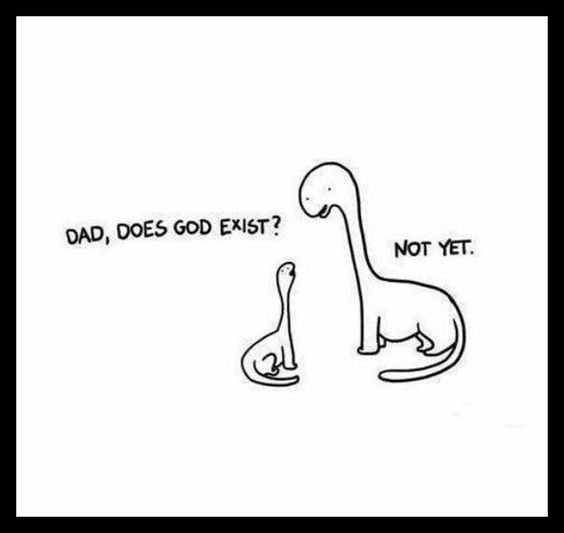 Anyway, I was here until ’69, but I had been on sabbatical from August ’67 until May ’68, during which time I visited some 23 university campuses in the US and Canada, and read papers, and finished up being offered 12 chairs over there, including one at perhaps the most prestigious of them all, Johns Hopkins. I couldn’t make up my mind between them. The only one that really tempted me was Vancouver, with its proximity to the skiing. It took me a year or so to make up my mind, and eventually I was invited by a New Zealand philosopher who had taken the chair at Simon Fraser university in Vancouver. I was invited to take a post as an associate full professor. I more or less leapt at the chance. I taught there until a mandatory retirement at the age of 65, which was in ’96. My career in Canada allowed me to live as I could never have hoped to live in New Zealand. The magnificent wilderness, the great skiing, the opportunity to do things, including invent a lot of things, like inventing various gadgets for use in the agriculture industry, some of which I was recommended to patent, but never did. I developed an oyster and clam-farm and got caretakers to run them, I learnt how to work a chainsaw and to fell 70 to 90 foot furs and cedars. Built an octagonal log cabin, a unique design. Etc. Learnt to fly, learnt to crash!”
Anyway, I was here until ’69, but I had been on sabbatical from August ’67 until May ’68, during which time I visited some 23 university campuses in the US and Canada, and read papers, and finished up being offered 12 chairs over there, including one at perhaps the most prestigious of them all, Johns Hopkins. I couldn’t make up my mind between them. The only one that really tempted me was Vancouver, with its proximity to the skiing. It took me a year or so to make up my mind, and eventually I was invited by a New Zealand philosopher who had taken the chair at Simon Fraser university in Vancouver. I was invited to take a post as an associate full professor. I more or less leapt at the chance. I taught there until a mandatory retirement at the age of 65, which was in ’96. My career in Canada allowed me to live as I could never have hoped to live in New Zealand. The magnificent wilderness, the great skiing, the opportunity to do things, including invent a lot of things, like inventing various gadgets for use in the agriculture industry, some of which I was recommended to patent, but never did. I developed an oyster and clam-farm and got caretakers to run them, I learnt how to work a chainsaw and to fell 70 to 90 foot furs and cedars. Built an octagonal log cabin, a unique design. Etc. Learnt to fly, learnt to crash!”
Steel – And you would never have had those kinds of opportunities here?
Bradley – No! No way. That log cabin I built up the coast, the location with bears and cougars and wolves in the woods around, six and a half miles, nine or ten kilometres away from the nearest road, everything had to be taken in by a little boat. I actually got a council grant for 20 months at one point, which I put into living up there pretty well constantly, and in solitary mode, except for a girlfriend – you’ve got to be honest. To write a book. That taught me a lot, learning to live by myself in the silence of the wilderness. After about three weeks when I hadn’t yet got a radio telephone, I found myself experiencing loneliness, the absence of human voices, and I picked up a copy of The Decline And Fall Of Rome by Gibbon, and I took to reading that aloud to myself. I’d wander around the cabin with it in my hand, reading it aloud. It made all the difference. To be sure it was my own voice, but…
But as for my major contributions to logic, I’ve been too much of a generalist to have made many contributions to the very forefront of the discipline. I’ve published in just about every area that’s recognised: philosophy with mathematics, philosophy with logic, metaphysics, ethics, philosophy of science, philosophy of religion. The only area I have at best only a marginal contribution to is ethics, but I have long had a very powerful ethical sense, moral sense some would call it. The more cognitive area – not the area to do with the so-called value theory. My driving theme has been that that which is essentially an elaboration of Socrates, who said and became famous for saying “the unexamined life is not worth living”. And I came to elaborate on that, indeed, at my very first lecture when I came to the chair at Auckland, and I was reminded of this recently by one of my then students – it was her first experience of philosophy and she’s just recently semi-retired from the department.
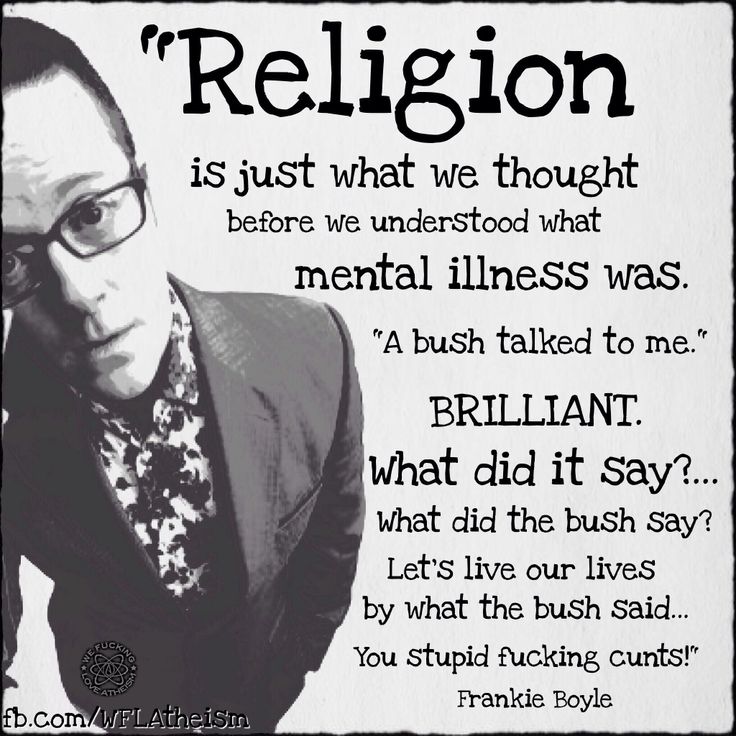 My very first lecture began by saying Socrates said “the unexamined life is not worth living.” And I say ‘the unexamined beliefs are not worth having’. And that stuck with her, and motivated her to get into philosophy. And by unexamined beliefs, I mean beliefs which are not scrutinized carefully as to their full import. What they imply, whether they are consistent with other beliefs. Whether they are consistent with the evidence.
My very first lecture began by saying Socrates said “the unexamined life is not worth living.” And I say ‘the unexamined beliefs are not worth having’. And that stuck with her, and motivated her to get into philosophy. And by unexamined beliefs, I mean beliefs which are not scrutinized carefully as to their full import. What they imply, whether they are consistent with other beliefs. Whether they are consistent with the evidence.
The great Scottish philosopher David Hulme once said “proportion the strength of your beliefs, that is the confidence with which you hold them to the strength of the evidence”. I didn’t come across it until my third year in philosophy, but in effect it encapsulated my approach from early childhood: what’s the evidence for Santa Clause? What’s the evidence for Jesus, his historicity? What’s the evidence for God? And I would look at the arguments, I would scrutinize them carefully. I came to value logic as an instrument of analysis very, very importantly.
So that more or less covers most of the areas that I’ve published in other than value theory. I did publish a book, or rather co-edited a book, on environmental ethics, and wrote one or two minor papers in ethics, but I suppose if I was to encapsulate any essence it would be this: that any purported moral system which does not give primacy to both of the natural sentiments of empathy and compassion is an empty jangling set of rules. Now those two sentiments of empathy and compassion are sometimes thought to be captured by the so-called Golden Rule: Do unto others as you would that they should do unto you. And that in itself, the golden rule, was frequently but mistakenly ascribed to the Jesus of the new testament. In fact, it’s to be found in one verbal equivalent or another in all of 21 major religions, and even more ethical systems, ethical philosophies, many of them way before the alleged Jesus. But what I’m getting at isn’t quite the same, because the so-called golden rule is best seen as an ethic of reciprocity: do unto others. Well, if you like suffering, does that mean that you should inflict that on others.
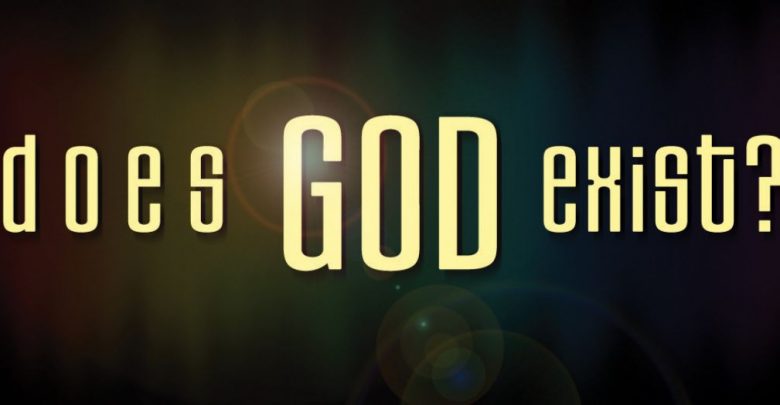 Steel – It’s not logical.
Steel – It’s not logical.
Bradley – It really isn’t, in its full generality. Think it through.
Steel – What someone wants isn’t necessarily what you want.
Bradley – Precisely, whether it’s peanut butter or meat or whatever. I would that people give me meat, I’m a carnivore. Here I am, I’m depriving myself of meat, for you! I’m wanting to make you feel guilty. So empathy and compassion, and in an odd kind of way I think I can trace the power of those sentiments in my life, not to the moral doctrines taught to me by my parents and the church, but to my abhorrence at the doctrine of hellfire. It seemed to me to be wholly incompatible with a truly moral being. Empathy and compassion has been I suppose at the root of my social conscience, at the root of my anti-imperialism, I loathe what the great powers – great Britain, the US, with the power they have executed. America’s imperialism is more widespread than any other empire in the past. They have military bases in over 700 countries. They have been constantly at war since the end of the Second World War.
Steel – All in the name of God.
Bradley – Yes, in this case particularly infused with the notion of a Christian crusade. They are the most Christian country in the world. They think of themselves as a light on the hill, a great beacon to all mankind. I loathe the country. It’s a beautiful country, I loathe their policies. Fortunately I have a few friends who live there and share my empathy and compassion for others. Very anti-militaristic.
 Steel – Isn’t empathy and compassion simply something that comes from our own evolution?
Steel – Isn’t empathy and compassion simply something that comes from our own evolution?
Bradley – Well, that’s a very good point. I agree with you totally. There’s increasing evidence from ethologists to the effect that the higher mammals in particular, but also some in the reptilian and avian world – there’s increasing evidence there of very strong empathetic and compassionate instincts. You see it in not only chimpanzees who share much of our genetic inheritence, but even in monkees who are much more distantly related. I remember going to the zoo in Auckland when I was a kid, and I stood in horror watching a pack of monkeys attacking a young, quivering, howling female. Why, I know not. But eventually, another came over and more or less took her gently in her arms. She must have had some position of dominance – and stroked and consoled her. That I found a moving experience. Another experience that I recall with vivid horror was that of visiting one of my uncle’s farms down in the Bay of Plenty, and he had cows. And the time had come where we were visiting during the school holidays when they were culling the calves. The male calves, the bobby calves as they call them, and slaughtering them. And he did that in the presence of their mothers. And their mothers reacted with such horror, moral horror, I would call it. It sickened me. I think the evidence throughout the animal world of some of these nobler sentiments is very powerful. I think it very important, too, when you’re thinking about the animal world, not to separate off yourself or your species, from its continuity, its evolutionary continuity with the rest of the animal world. Of course there are some theological and philosophically enhanced theories that would make us special in the kind of way that was envisaged by the Pope before the present Pope, who in order to accommodate a belief in the facts of evolution contented himself with propagating the doctrine that yeah, we may have evolved as the new Darwinists say, but at some point it’s imperative to believe that God as it were injected a spiritual soul into the human species. So that we’re immediately faced with the implication that the first REAL human being, Adam or Eve, had parents who aren’t going to go to heaven. Tough luck!
 Okay, let me back up a second. The doctrine that I’m getting at is the separation of the body and the soul more than the mind. Mind you, there can’t be too much of a difference between the soul and the mind, because if we are going to experience an afterlife, the mental abilities had better go with your soul! [laughs] Insensate and unintelligent in the great hereafter! I won’t give you my diagnoses of the body/mind problem which has dominated philosophy since the great French philosopher Descarte who developed what came to be known as The Ghost In The Machine, a supernatural entity inhabiting the physical entity of the body. That’s by the way the metaphor that Gilbert Ryle, who I mentioned, used. Here’s a case which is endemic in people’s thinking of taking a word like ‘mind’ and because it’s a noun, regarding it as the name of a thing. After all, those who were taught any smatterings of grammar at school came to think of nouns as names of things, so we tend to think of the mind as the name of a thing. Now let me ask you this? If you were to watch a vivisection – we’ll indulge ourselves for a moment in the rather abhorrent fantasy of vivisection of a human being. We can soften the image a little by supposing that him or her has been duly anaesthetized before the operation takes place. And as you’re watching the dissecting of this body you’re given a little box of cards, each on a pin, and as you pick each one up in succession, ‘liver’ it tells you where to poke that. ‘Heart’, ‘aorta’, and so on. And ‘brain’, and then you find one card left in the box, ‘mind’. Where are you going to put that? It won’t go into the brain because the brain has a certain size, a certain cubic capacity, a certain colour, a certain texture. Does the mind have a certain cubic capacity? Does the mind have a certain weight? No, it doesn’t have any of the properties that we ascribe to physical things. Consequently, people jump to the conclusion – or would, if they were to indulge in this sort of fantasy – that the mind is a non-physical entity. I want to say this is the wrong way to think about the mind. Ditto, it’s the wrong way to think about many abstract nouns that we deal with in our ordinary thinking. We ought to be aware of treating them as names of things. That way of thinking generates all sorts of needless puzzles. The mind isn’t the name of a thing, even an insubstantial non-physical thing, any more than consciousness is. There’s a whole journal of consciousness studies which is assumed some prominence in a certain interdisciplinary area, that is bedeviled, apart from a few intelligent contributions, by this presupposition that consciousness is a thing. Mind as I see it and would argue, is a compendious term that we use for a wide range of abilities. Abilities such as doing things intelligently, and so on. But there is no bearer of these intellectual properties. It’s a compendious name for a set of properties. A set of properties that can no more exist after the death of the body that has them than can the Cheshire cat’s grin exist after the Cheshire cat’s evaporated. Do you remember the story of the Cheshire cat? From Alice In Wonderland?
Okay, let me back up a second. The doctrine that I’m getting at is the separation of the body and the soul more than the mind. Mind you, there can’t be too much of a difference between the soul and the mind, because if we are going to experience an afterlife, the mental abilities had better go with your soul! [laughs] Insensate and unintelligent in the great hereafter! I won’t give you my diagnoses of the body/mind problem which has dominated philosophy since the great French philosopher Descarte who developed what came to be known as The Ghost In The Machine, a supernatural entity inhabiting the physical entity of the body. That’s by the way the metaphor that Gilbert Ryle, who I mentioned, used. Here’s a case which is endemic in people’s thinking of taking a word like ‘mind’ and because it’s a noun, regarding it as the name of a thing. After all, those who were taught any smatterings of grammar at school came to think of nouns as names of things, so we tend to think of the mind as the name of a thing. Now let me ask you this? If you were to watch a vivisection – we’ll indulge ourselves for a moment in the rather abhorrent fantasy of vivisection of a human being. We can soften the image a little by supposing that him or her has been duly anaesthetized before the operation takes place. And as you’re watching the dissecting of this body you’re given a little box of cards, each on a pin, and as you pick each one up in succession, ‘liver’ it tells you where to poke that. ‘Heart’, ‘aorta’, and so on. And ‘brain’, and then you find one card left in the box, ‘mind’. Where are you going to put that? It won’t go into the brain because the brain has a certain size, a certain cubic capacity, a certain colour, a certain texture. Does the mind have a certain cubic capacity? Does the mind have a certain weight? No, it doesn’t have any of the properties that we ascribe to physical things. Consequently, people jump to the conclusion – or would, if they were to indulge in this sort of fantasy – that the mind is a non-physical entity. I want to say this is the wrong way to think about the mind. Ditto, it’s the wrong way to think about many abstract nouns that we deal with in our ordinary thinking. We ought to be aware of treating them as names of things. That way of thinking generates all sorts of needless puzzles. The mind isn’t the name of a thing, even an insubstantial non-physical thing, any more than consciousness is. There’s a whole journal of consciousness studies which is assumed some prominence in a certain interdisciplinary area, that is bedeviled, apart from a few intelligent contributions, by this presupposition that consciousness is a thing. Mind as I see it and would argue, is a compendious term that we use for a wide range of abilities. Abilities such as doing things intelligently, and so on. But there is no bearer of these intellectual properties. It’s a compendious name for a set of properties. A set of properties that can no more exist after the death of the body that has them than can the Cheshire cat’s grin exist after the Cheshire cat’s evaporated. Do you remember the story of the Cheshire cat? From Alice In Wonderland?
Alice meets the Cheshire cat sitting on a bow, and he has the curious habit of gradually disappearing, and reappearing. And Alice says something like ‘I wish you wouldn’t keep doing that, it makes me feel quite giddy.’ So the Cheshire cat replies, okay, I’ll just do it slowly. And he disappears slowly, beginning at the tip of his tail, and going right on until nothing but his grin remains. And Alice says ‘well, that is the most curious thing I’ve ever seen. I’ve often seen cats without a grin, but I’ve never seen a grin without the cat.’ The point being, of course it’s absurd, and by the way the author… those two wonderful fairy tales Alice In Wonderland and Through The Looking Glass, are packed with profound philosophical points. To have a grin on your face is a property of the face, but if there’s no face there, there can’t be a grin. Just as a grin can’t exist as an independent entity after the death of the body that showed the grin, so too in my view intellectual properties that we wrap up together in this umbrella term ‘mind’ can’t continue to exist independently of the brain that has them. That’s one of the reasons that I take the position that the prospect of immortality as popularly conceived is abysmal, for logical reasons. It makes as little sense – and here I’m using another example of the great English philosopher John Locke – He says to ask a certain question, and I’ll substitute the question. Can the mind continue to exist after the body is to ask just as absurd a question as can your sleep be swift or can your virtue be slow. In fact, they’re cross category: movement can be slow, but the condition of sleep is neither fast nor slow. He says some of these questions philosophers – and other people – are worried about are just absurd. So the spuriousness of the grin remaining in the absence of the cat.
God’s Gravediggers – Why No Deity Exists, Raymond D. Bradley (Ockham Publishing)





